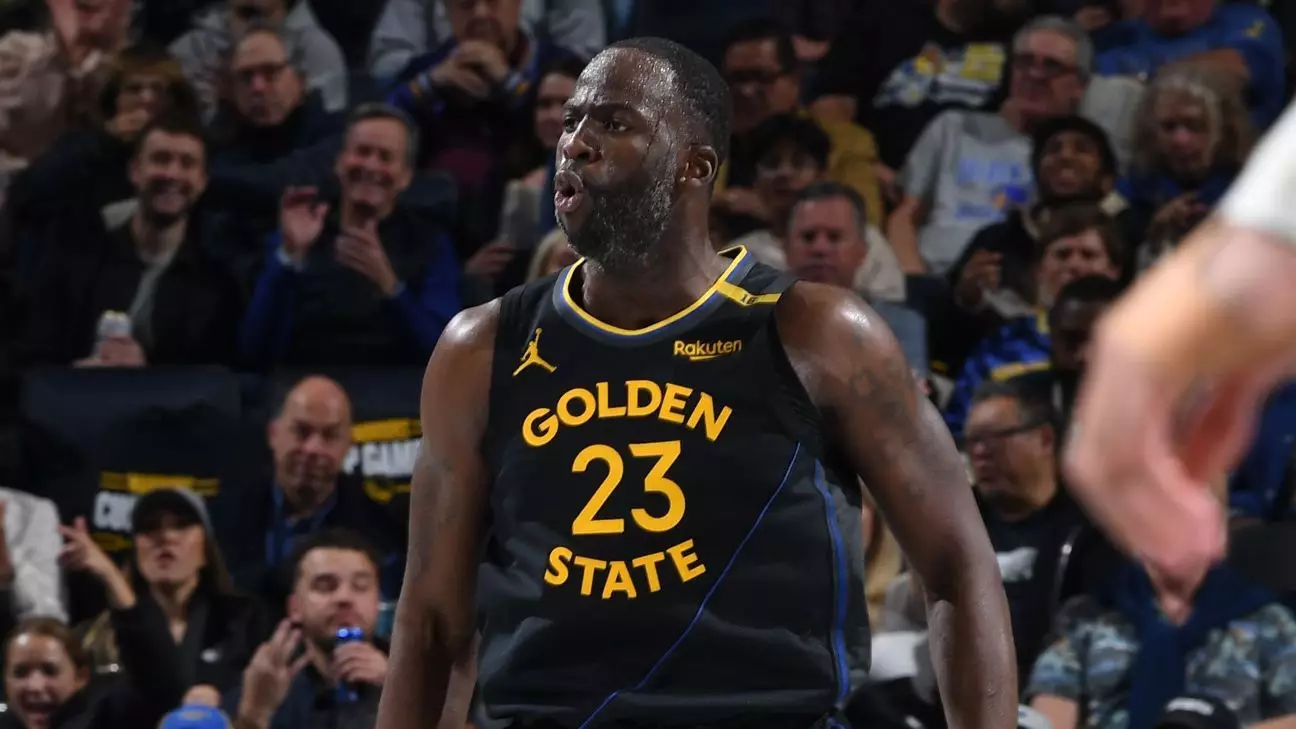Professional sports are often a microcosm of life, where personal conflicts and the challenges of teamwork can become amplified under the scrutiny of public attention. The recent remarks by Golden State Warriors forward Draymond Green regarding the infamous incident involving former teammate Jordan Poole serve as an insightful opportunity to examine personal growth, accountability, and the path toward reconciliation in the competitive world of professional basketball.
In October 2022, a moment of conflict erupted within the Warriors’ locker room that reverberated through the franchise for years. During what was meant to be a productive preseason practice, tensions flared between Green and Poole. After an exchange of provocative words, Green impulsively responded with a punch. This explosive exchange was captured on video, which leaked to the public and significantly impacted the team’s dynamics. It highlighted not only the volatility of emotions but also the underlying pressures that athletes face when balancing competitiveness with camaraderie.
Green’s initial response to the incident was one of immediate regret, as he publicly apologized to Poole and his family. The league, while not imposing any formal discipline, did see the Warriors fine Green and subsequently noted his absence from the team for several days. However, the fallout from this episode signaled the beginning of a period fraught with disrupted relationships and team unity.
Fast forward to the present, Green now seems to be embracing a more reflective standpoint regarding the incident. In his recent comments, he reiterated that he takes full responsibility for his actions, stating, “I shouldn’t have punched him. But it happened. Let’s move on.” This sentiment underscores a crucial aspect of accountability, especially in high-pressure environments where emotions can run deep. Green candidly acknowledged that while his reaction was unwarranted, he also felt provoked by the circumstances. His introspection highlights an important lesson: accountability involves acknowledging one’s mistakes while also recognizing that human interactions can be complicated.
During an episode of “The Draymond Green Show,” he expressed a desire to move forward, indicating that dwelling on the past does not serve any purpose. This transition from remorse to a call for forward momentum reflects a deeper understanding of the importance of both personal and professional relationships. He articulated the notion that individuals must sometimes let bygones be bygones in order to foster a healthier environment both within and outside the confines of a sports team.
Adapting to Change: Therapy and Personal Growth
In the aftermath of tumultuous events, many athletes find themselves seeking avenues for growth and reflection. Green’s recent experiences highlight his steps toward personal transformation, as he has actively engaged in therapy and counseling. After facing multiple suspensions over the past season for incidents involving on-court aggression, Green recognized the necessity of adapting his behavior to enhance not only his performance but also his interpersonal interactions. His comments about undergoing counseling with two therapists and utilizing sports psychology speak volumes about the importance of mental resilience in sports.
This journey toward self-improvement underpins a powerful message: regardless of past mistakes or controversies, individuals can evolve. Green’s focus on taking accountability, admitting failures, and aspiring for personal growth presents a hopeful narrative for all athletes facing similar challenges. “They’re my fault. I needed to be better, and I failed. We all fail. But I’m not a failure,” he stated succinctly, reminding us that failure is an intrinsic part of growth.
The Path Forward: A Competitive Spirit Fueled by Understanding
With the Warriors facing adversity during their recent season, mixed with injuries and player trades, Green recognizes that the culture within the team has to adapt accordingly. His influences on and off the court can shape the team’s trajectory moving forward. The willingness to apologize and encourage a move past the friction showcases his understanding that the essence of sports is not merely about competition but also about collaboration and unity.
As Green integrates this newfound perspective and authenticity into his role, it offers a broader lesson for all: changes in mindset and a sincere effort toward improvement can redefine future interactions. As he stated, “I want people to say… look where it went from there. And that’s due to because he took accountability.” Ultimately, fostering harmony and resilience in the face of adversity may very well lead Green—and his teammates—toward reaching their full potential, both as competitors and as individuals.

